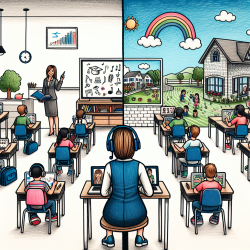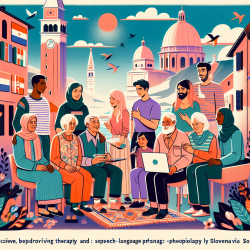In the quest to provide equitable speech-language therapy (SLT) services to underserved communities, the study "Sustainable Delivery of Speech-language Therapy Services in Small Island Developing States Using Information and Communication Technology – A Study of the Maldives" offers valuable insights. This research underscores the potential of leveraging Information and Communication Technology (ICT) to deliver sustainable SLT services in the Maldives, a Small Island Developing State (SIDS).
The study utilized a mixed-method approach, integrating data from 21 online documents, an interview with an ICT official, and surveys of 13 island councillors and 73 parents of children with communication difficulties. The findings revealed several critical points:
- Accessibility of ICT: Almost 100% of the Maldivian population has access to mobile phones and mobile broadband internet, providing a solid foundation for ICT-based service delivery.
- Social Conditions: A significant proportion of parents are active internet users, confident in using ICT for various purposes, including accessing information related to their children's needs.
- Economic Conditions: Although fixed broadband costs are high, mobile broadband is more affordable, and the government provides financial aid for people with disabilities.
These findings suggest that using mobile broadband and asynchronous methods (store and forward) for SLT service delivery could be highly effective. Here are some actionable steps practitioners can take to implement these findings:
- Utilize Mobile Broadband: Given the widespread access to mobile broadband, practitioners should prioritize mobile-based service delivery. This approach is cost-effective and aligns with existing ICT usage patterns in the Maldives.
- Leverage Asynchronous Methods: Due to variable internet reliability, asynchronous methods such as recorded video sessions and messaging can ensure consistent service delivery without the need for real-time connectivity.
- Engage Parents as Agents of Delivery: Parents are already active ICT users and can be trained to support their children's therapy, enhancing the reach and effectiveness of SLT services.
Further research is needed to explore other aspects such as the focus and level of intervention, which would help develop comprehensive, sustainable service delivery models. Practitioners are encouraged to explore these findings and consider how they can be adapted to their specific contexts.
To read the original research paper, please follow this link: Sustainable Delivery of Speech-language Therapy Services in Small Island Developing States Using Information and Communication Technology – A Study of the Maldives










